Latinos find a piece of Old West dream in ‘Bonanza’ country, fires be damned
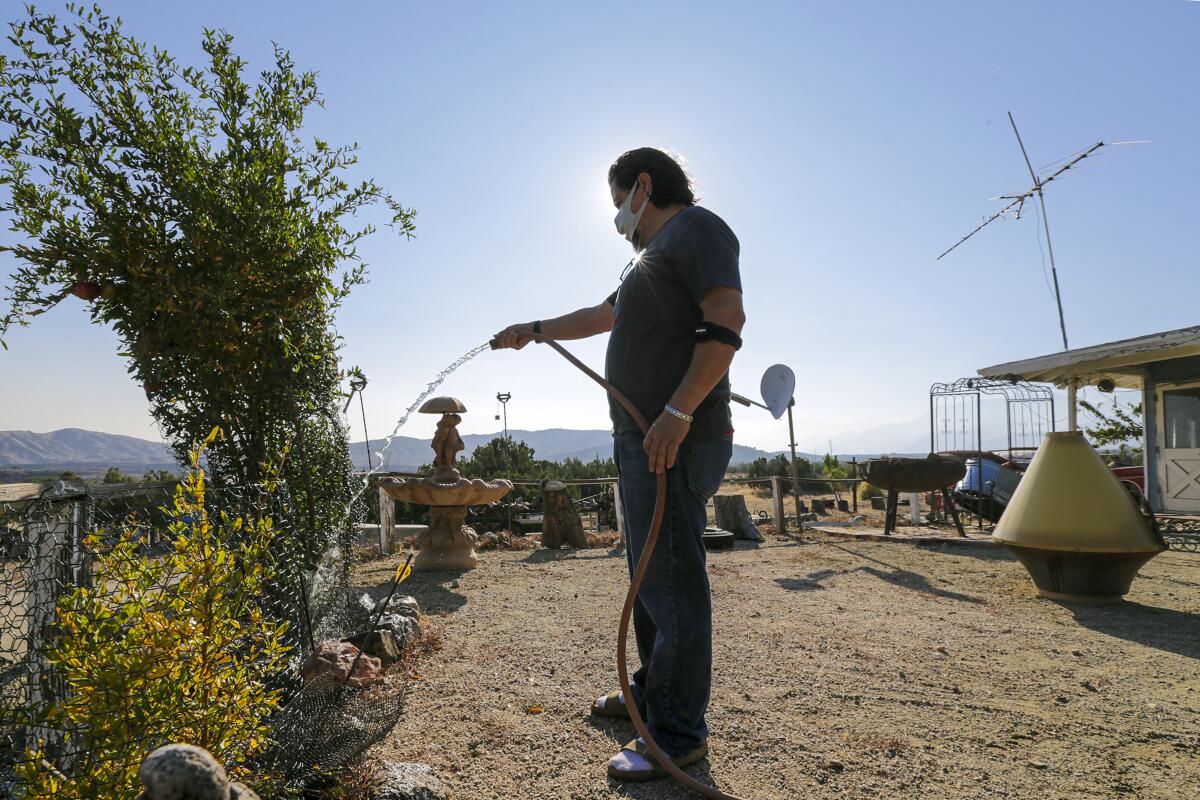
- Share via
Zenón and Martha Mayorga called their four adult children to the family home in Glassell Park the night of Sept. 18. Everyone settled in the living room, turned on the TV and prepared to see their dream house burn down.
Newscasts aired live shots of the wreckage wrought by the massive Bobcat fire. Authorities had mandated evacuations the day before in Juniper Hills, an Antelope Valley community where the Mayorgas own a four-bedroom abode on 1.5 acres of juniper trees and hiking trails that they call el rancho.
A neighbor had texted Zenón that their nook of Juniper Hills was no more. So the Mayorgas comforted themselves with chamomile-passionflower tea and memories of their desert paradise.
They remembered how Zenón bought it in 2009 because the stark vistas and high altitude had reminded the Mexican immigrant of his native Zacatecas. How he had to convince his family — and especially Marta, a city girl from Guadalajara — that a beat-up structure with holes in the roof, missing windows and snakes everywhere was a sound investment.
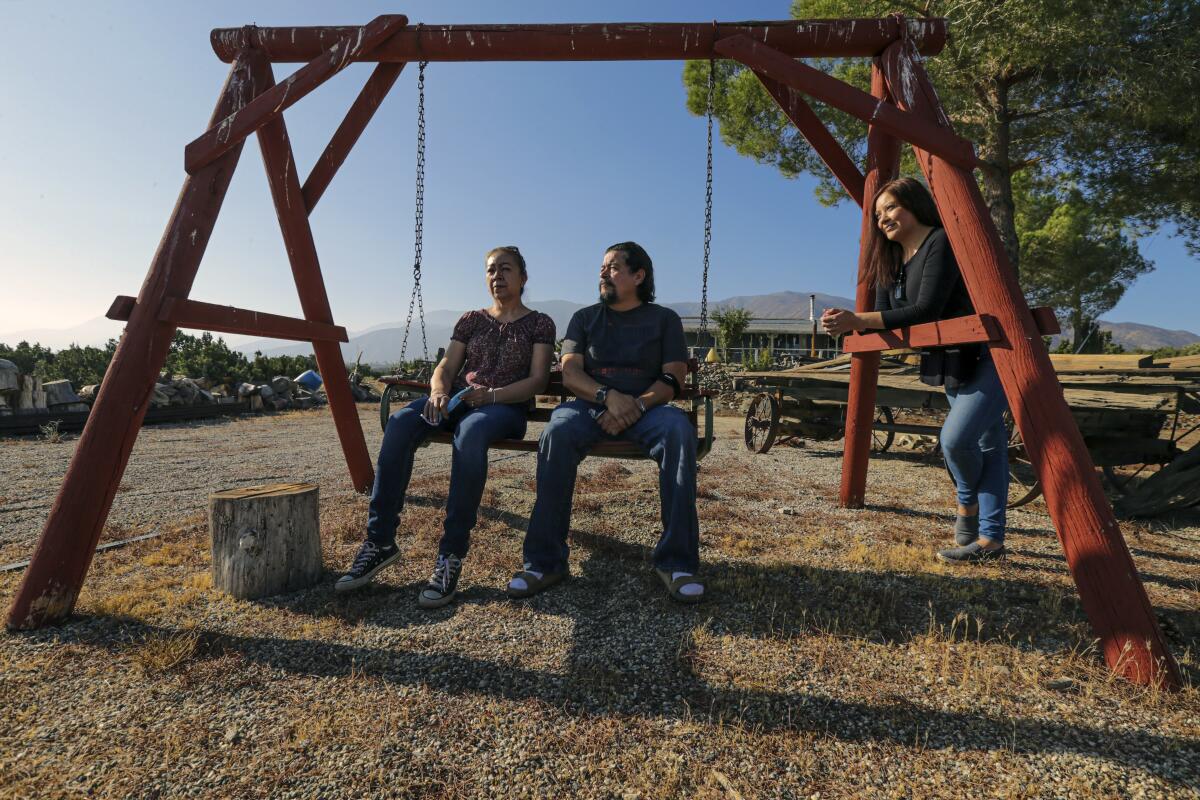
And how all the parties, sleepovers and bonding that kith and kin experienced almost every weekend over the past decade had proved him right.
“When you’re younger, you’re like, ‘Ugh, we’re going all the way up there?’” said April Mayorga-Aguirre, a 30-year-old marriage and family therapist. “But now, even in our full-blown careers, we try to go up there as much as possible.”
April and her family stayed up for the 11 o’clock news and saw the homes of their Juniper Hills friends in flames. There were tears, prayers. That night’s magnitude 4.5 earthquake brought even more nerves.
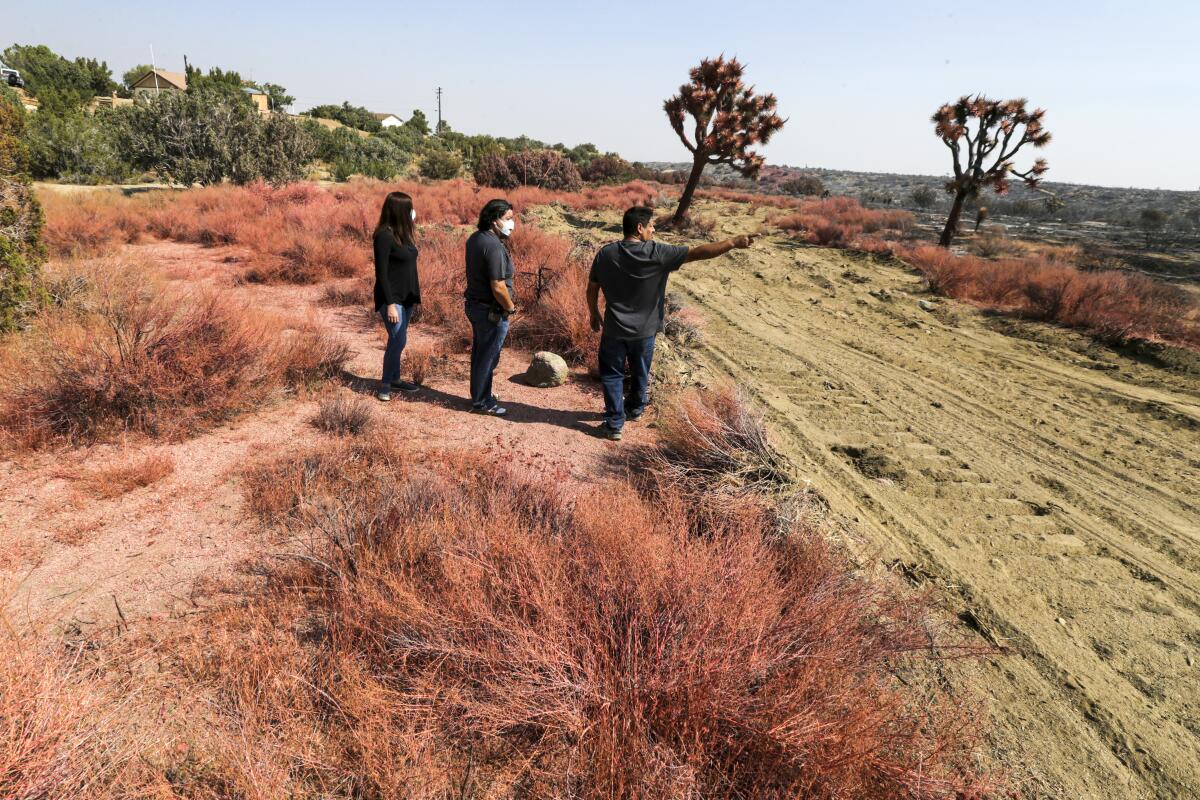
The family rushed up to their property the following morning. Helicopters and planes zoomed overhead; ashes and embers swirled all around. The Mayorgas gunned through unpaved roads and steeled themselves for the worst.
El rancho was unscathed.
Zenón, Marta, and April met me there last Saturday, on what was supposed to be April’s wedding date in Palm Springs until 2020 said otherwise. Their house is desert rat lite: big screened porch in the front, massive water and propane tanks next to the outhouse in the back, random tchotchkes — but not too many — strewn about. Marta busied herself in the kitchen as Zenón settled in his chair, the one that offers him sight lines all the way to China Lake on a clear day.
Which wasn’t today.
“This year has taught us to live in the moment with gratitude,” said April. “We hope to spend the holidays here, but who knows?”
“Because tomorrow, what you may have is gone,” Zenón added. “We have our family. We’re safe. The rest, God will decide if we deserve it.”
Pardon my Southern California ignorance, but I never expected to find middle-class Mexicans in the rural high desert. The Mexicans I know, when they want to buy land to raise horses or host rodeos like in the motherland, buy in Norco or Mira Loma.
Not in the heart of “Bonanza” country.
But a growing number of Latinos are moving to the back country of the Antelope Valley, drawn by the rugged terrain and individualistic ethos that American society long cast as the Old West spirit and reserved mostly for Anglos.
“It’s just like Mexico up here,” 57-year-old Zenón said, gesturing outside, comfortable in his socks and Birkenstocks. “If you want to have chickens and goats, you can. It’s that liberty.”
Then, he paraphrased a line from a Roy Rogers ballad, in equal parts English and Spanish. “Here, está abierto [It’s open]. Allá, está muy amontonado [It’s too crowded in L.A.]. I don’t want to fence myself in.”
**
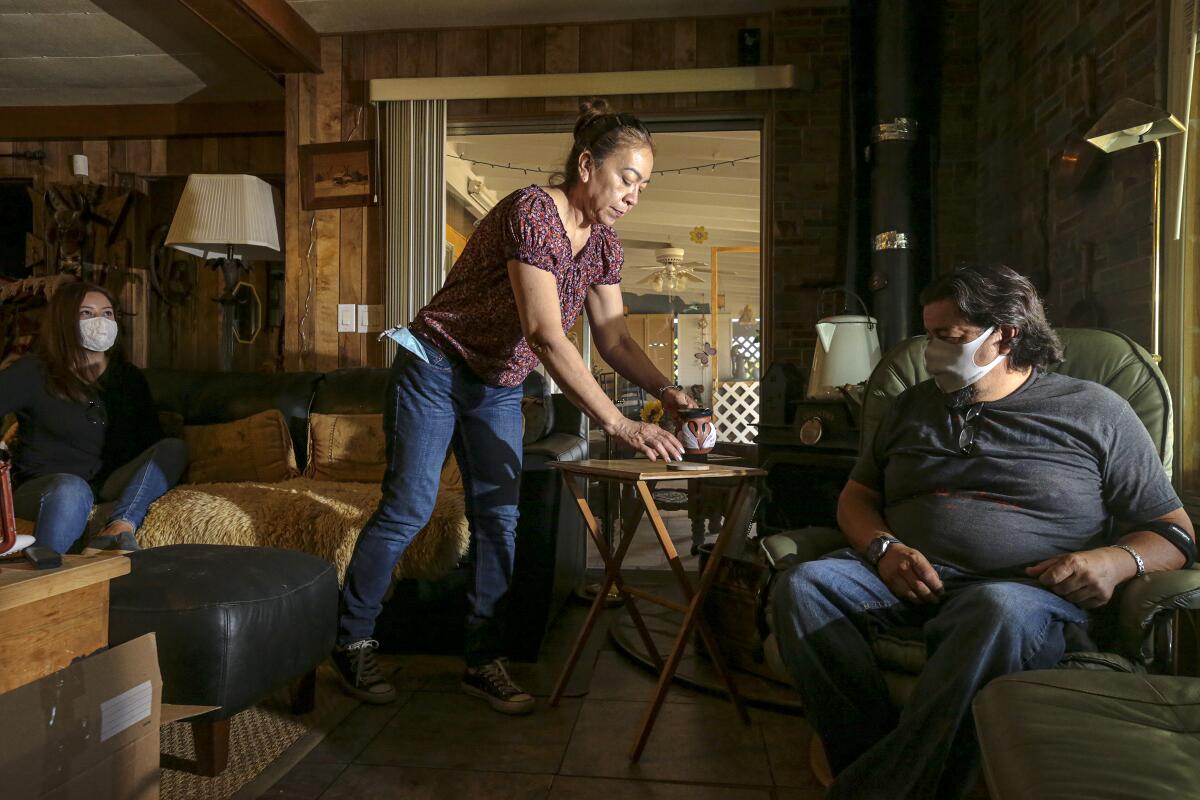
Juniper Hills called to Zenón almost as soon as his family migrated to the United States in the 1970s, “when there was almost nothing.”
His truck-driving brothers took their teenage brother on their routes through nearby Highway 138 or on visits to Boron, where people from his home village of El Salitre had settled to work in the borax mines.
The region stayed with Zenón as he married, raised a family, and got a job with the Los Angeles Unified School District, from which he plans to retire next spring after 41 years as an operational supervisor. He had hopes of returning to Zacatecas, but “you can’t make a go of it in Mexico anymore” because of the drug wars that now plague the once-peaceful state.
Instead, the Mayorgas refinanced their home during the Great Recession and scraped together a little nest egg in the process. He persuaded his wary wife to embrace his Juniper Hills plans.
They would be among the first Latinos to settle there.
A loud knock on the window woke up the couple on one of their first nights alone. An elderly white couple wanted to know who they were.
“Once we introduced ourselves,” said Zenón, “they told us to come to their house in the morning for breakfast. And the following night, they threw a potluck to introduce us to everyone.”
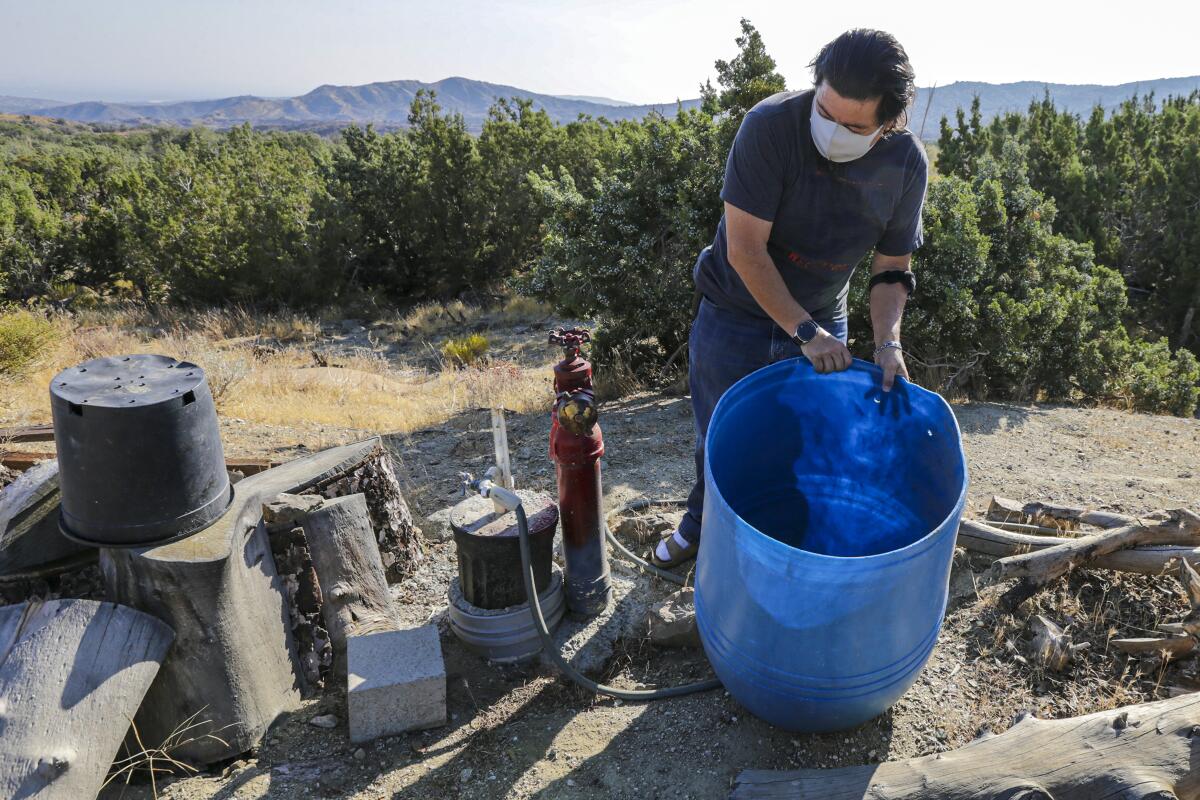
Today, someone who likes to wave a Confederate and Trump 2020 flag on a pole occupies that house. Zenón not only says hello to him, the two even cleared a road together last year after a snowstorm.
“He can fly his flag, and I can fly my own [Mexican] flag,” Zenón said. “Because they’re looking out for us, and we’re looking out for them.”
More Latinos trickled up to Juniper Hills in the ensuing years, and the Mayorgas always made sure to welcome the newcomers the same way they were initially embraced.
“At the end of the day, their [white residents’] life is the same we [Latino residents] want,” Zenón said. “Our customs are a little different. Our languages are different. But we’re all God-fearing people up here.”
The Mayorgas are a reminder that in Southern California, destination still often remains destiny. The Mexicans I know who live along the beach inevitably become beach bums. Those who move to a gentrifying neighborhood turn into hipsters. Those who buy a house in Irvine or Simi Valley always transform into insufferable suburbanites.
What death of the California dream? Mexicans fall into it like everyone else.
After about an hour at their place, Zenón and his family drove me to meet Alejandro and Rosie Landa, another Mexican family in Juniper Hills.
The 45-year-old union electrician grew up in Pacoima but bought a place up here four years ago “because I’m a wilderness guy.” He joked that he had to make Rosie “a ranchera” — a cowgirl — as he took us to the back of his five-acre estate.
The fire had blackened his neighbor’s property. The demarcation line between that wasteland and the Landas’ backyard was a line of fire retardant that had tinted Joshua trees and lavender bushes crimson red.
He had spent the morning restoring power to the homes of two elderly widows. “They’re from the original generation of people here,” Landa said. “Now, you have a whole pot of different people.”
The only real difference he had encountered with the old guard was, of all things, quails.
“They’re cute — they’re like pets,” said the avid hunter. “But some of the guys here will invite me to go get them, and I tell them, ‘So you want me to kill them and pluck them and gut them, when I could buy four quails at Superior [Grocers] for seven bucks, and I don’t have to do anything?”
Hoss Cartwright would’ve appreciated that. (Just Google him, kids.)
More to Read
Sign up for Essential California
The most important California stories and recommendations in your inbox every morning.
You may occasionally receive promotional content from the Los Angeles Times.














